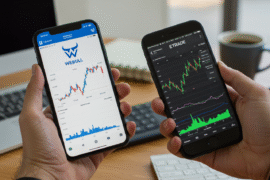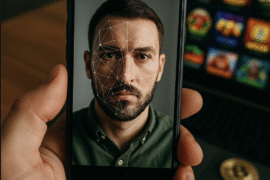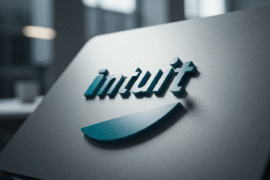Privacy concerns have become a growing issue in the digital age, especially for online shoppers. According to a study done by the International Association of Privacy Professionals (IAPP), nearly 70% of consumers globally have avoided making an online purchase due to privacy concerns. From high-profile data breaches to targeted advertising based on personal transactions, it is evident that traditional payment methods often expose sensitive information. For those seeking a more secure way to shop online, the search for alternatives has never been more urgent.
Cryptocurrency has emerged as a revolutionary solution that offers a level of anonymity and security that conventional payment systems struggle to match. Unlike credit cards or bank transfers, cryptocurrencies rely on decentralized networks and pseudonymous transactions, ensuring that personal information remains protected. Options like Monero, accessible through a Monero wallet, take privacy even further with advanced features designed to obscure transaction details.
This article delves into the ways on how cryptocurrency is able to promote a safe environment when making online payments, providing shoppers with the confidence to navigate the digital marketplace securely and anonymously.
Protecting Personal Identity with Pseudonymity
Traditional payment methods, such as credit cards or bank transfers, often require users to share sensitive personal information like their name, billing address, and account details. This exposure leaves online shoppers vulnerable to identity theft, fraud, and data breaches. Cryptocurrencies, on the other hand, offer a pseudonymous alternative that significantly reduces these risks.
With cryptocurrency transactions, users are identified by wallet addresses—unique strings of characters that reveal no personal information. These wallet addresses act as digital stand-ins that allow shoppers to complete transactions without sharing private details. For example, if you were purchasing equipment from an online retailer, your cryptocurrency wallet would only transmit the payment, keeping your identity and financial data completely private.
This layer of pseudonymity is especially valuable for individuals who frequently shop online, as it minimizes the likelihood of personal information being leaked or misused. By eliminating the need for sensitive data exchange, cryptocurrencies provide a more secure and private payment experience.
Enhanced Privacy Through Decentralized Networks
Centralized systems, such as those used by banks and traditional payment processors, often require a significant amount of personal information to complete transactions. In addition to being a potential security risk, this level of oversight can lead to privacy concerns for online shoppers. Cryptocurrencies address these issues by operating on decentralized networks, where no single entity controls or monitors payment data.
These decentralized systems rely on blockchain technology, which distributes transaction records across multiple nodes to prevent unauthorized access or data breaches. For shoppers, this means that sensitive information is neither stored nor shared during the payment process. Unlike traditional payment methods though, cryptocurrency transactions are inherently secure and do not tie personal identifiers to the transaction itself.
Furthermore, decentralized networks empower users with complete control over their transactions. Shoppers can conduct financial activities without intermediaries monitoring their payment history or exploiting their data for advertising purposes. This autonomy ensures that your financial activity remains private, allowing you to shop with confidence and peace of mind.
Advanced Privacy Features in Specialized Cryptocurrencies
While most cryptocurrencies provide basic privacy through pseudonymity, some go further by incorporating specialized features designed to obscure transaction details entirely. These privacy-focused cryptocurrencies are ideal for online shoppers seeking maximum confidentiality when making digital payments.
Monero, for example, enhances privacy with technologies like stealth addresses and ring signatures. Stealth addresses create unique, one-time-use addresses for each transaction, preventing them from being linked to the user’s primary wallet. Meanwhile, ring signatures blend the sender’s transaction with others, making it nearly impossible to trace the origin of funds. Such innovations ensure that even on a transparent blockchain, the details of a transaction remain private.
For shoppers concerned about leaving a digital trail, these advanced features offer another level of assurance. Specialized cryptocurrencies like Monero cater to the growing demand for secure and anonymous transactions, providing tools that align with the unique needs of privacy-conscious consumers in the online marketplace.
Global Privacy for Cross-Border Transactions
International shopping opens up a world of possibilities but also raises privacy concerns. Traditional payment methods often require personal information like billing addresses and financial details, which can be exposed to multiple parties during cross-border transactions. Moreover, as these systems rely on intermediaries, there is an increased risk of data breaches and unauthorized access.
Cryptocurrencies address these challenges by offering secure and private alternatives for global payments. Cryptocurrencies operate independently of banks and payment processors and eliminate the need for personal verification or third-party involvement. Whether purchasing equipment from a retailer overseas or paying for services in another country, users can complete transactions without sharing personal information or financial data.
By protecting personal data and streamlining cross-border payments, cryptocurrencies empower online shoppers to navigate global marketplaces without sacrificing their privacy.
Cryptocurrencies offer a compelling solution to the growing privacy concerns surrounding online shopping. By leveraging decentralized networks and pseudonymous transactions, they provide secure and anonymous alternatives to traditional payment methods. Consider exploring this technology today so that you can protect your personal information and shop with confidence in an increasingly digital world.
Become an Insider

Subscribe to get a free daily budget planner printable to help get your money on track!
Make passive money the right way. No spam.
Source Citation References:
+ Inspo










































